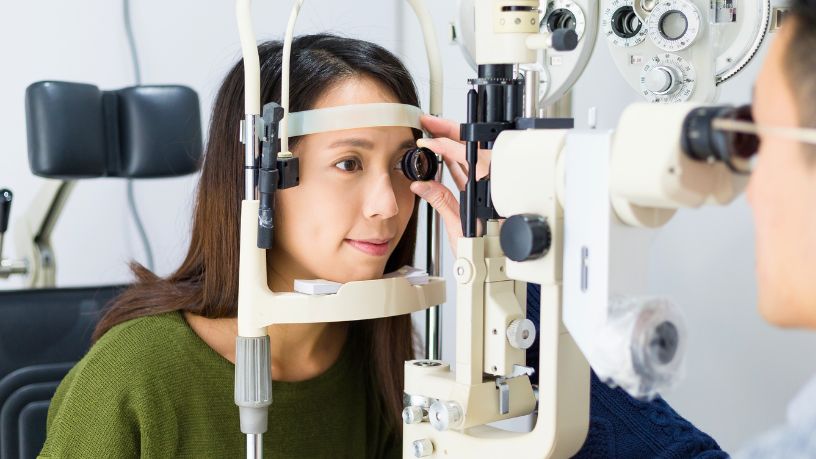Find out about the key health checks you should consider.
On this page
Key takeaways
Different health checks become relevant depending on your stage of life.
Your GP might recommend further screenings or tests depending on your health and circumstances.
Undiagnosed medical issues can have a snowball effect on your health. Left untreated, they can get worse and harder to resolve over time.
Getting a health check is an important step in detecting and addressing these potential issues before it’s too late.
During a health check, your GP can examine your health and look at your lifestyle and medical history. They may recommend further checks or screenings based on things like:
- age
- weight
- ethnicity
- pre-existing conditions
- family history.
There are numerous key health checks recommended at different stages of adult life, and we’ve put together a full, detailed list for each stage.
Your GP may advise different health checks for you based on your own medical and family history.
If you are of Aboriginal or Torres Strait Islander background, some health checks may be recommended earlier or more frequently. Talk to your doctor about what health checks are right for you.
Key health checks in your 20s and 30s
- Blood pressure check. Performed every couple of years by your GP, this check can help prevent issues like stroke and heart problems.1
- Diabetes check. If left untreated, type 2 diabetes might become a serious problem. Your doctor may look at your risk factors to determine whether any tests are needed.
- Cholesterol check. High cholesterol can lead to heart disease. Addressing this issue when you’re younger may decrease your risk.2
- Cervical screening tests. It’s recommended that women and people with a cervix over the age of 25 have cervical screening tests every 5 years (or as advised by your doctor).
- Breast check. All women and trans and gender diverse people should get to know their breasts, and self-check for breast cancer. Any abnormalities may require a trip to your GP.
- Dental check. Maintaining good oral health is something you’ll thank yourself for later in life. So, don’t just wait for that next toothache to book in with your dentist.
- Skin cancer check. In Australia, melanoma is the most common cancer among people aged between 15 and 29.3 Regular skin checks can significantly lower your risk.
- Sexually transmitted infection (STI) check. Depending on how sexually active you are, and your methods of contraception, you may require regular checks for STIs.
- Testes examination. To prevent the risk of testicular cancer, men and people with testicles of every age should check their testes regularly and visit their GPs if anything unusual appears.
- Healthy weight assessments. Get to know your body mass index (BMI) and waist to height ratio to determine your weight profile.
- Mental health check. It’s important to stay on top of your mental health. You can always visit your GP to discuss any problems (physical or mental), plus potential treatment options.
- Eye check. Eye tests can detect eye problems early, so consider having your eyes checked by an optometrist or ophthalmologist.
Key health checks in your 40s
As well as every health check that was relevant in your 20s and 30s (listed above), new health checks may include:
- Breast check. Get to know your breasts and perform regular self-checks to lower your risk of breast cancer. If something’s off, your doctor may order a screening test such as a mammogram.
- Type 2 diabetes check. Those over 40 may need to be assessed for type 2 diabetes every 3 years.6
- Bowel cancer test. If found early, 90% of bowel cancer cases can be treated successfully.7 People aged 45 – 74 are eligible to participate in the National Bowel Cancer Screening Program. Testing is easy with an at-home faecal occult blood test (FOBT).
- Heart health check. A heart health check helps you to understand your risk of having a heart attack or stroke in the next 5 years, giving you an opportunity to prevent it. People aged 45 years and older are eligible if they do not already have heart disease.8
- Health assessments for those at risk of developing a chronic disease. The Australian Government offers a one-off health check to people aged between 45 and 49 who are at risk of developing a chronic disease.6
Key health checks in your 50s and beyond
As well as every health check that was relevant from your 20s onwards (listed above), new health checks may include:
- Breast check. Continue to perform self breast checks and do this regularly to lower your risk of breast cancer. Women and trans and gender diverse people aged between 50 and 74 are encouraged to get free mammograms every 2 years through BreastScreen Australia.9
- Bone density test. As you get older, your risk of developing osteoporosis increases. A ‘dual-energy x-ray absorptiometry’ (DEXA) test may be required.
- Hearing assessment. Hearing problems increase with age, and many Australians live with some kind of preventable hearing condition.10 You may need to have your hearing investigated by a specialist.
- Lung cancer check. People between 50 and 70 years who are current or previous smokers and not showing signs or symptoms of lung cancer are recommended to take part in the National Lung Cancer Screening Program, aimed to detect lung cancer early.11


At Bupa, trust is everything
Our health and wellbeing information is regularly reviewed and maintained by a team of healthcare experts, to ensure its relevancy and accuracy. Everyone's health journey is unique and health outcomes vary from person to person.
This content is not a replacement for personalised and specific medical, healthcare, or other professional advice. If you have concerns about your health, see your doctor or other health professional.
1Australian Government, Institute of Health and Welfare. (2017). Risk factors to health: High blood pressure. Australian Government.
2Better Health Channel. (2022). Cholesterol. Victoria State Government, Department of Health.
3Cancer Council. (2023). Skin cancer incidence and mortality. Cancer Council.
4Centre for Eye Research Australia. (2024). Glaucoma. Centre for Eye Research Australia.
5Better Health Channel. (2018). Prostate gland and urinary problems. Victoria State Government, Department of Health.
6Health Direct. (2023). Manage your health in your 40s. Australian Government.
7Cancer Council Australia. (n.d.). A guide to: Bowel cancer screening.
8National Heart Foundation of Australia. (2025, September 12). Time to book a Heart Health Check?
9Australian Government, Department of Health and Aged Care. (2024). Breastscreen Australia program. Australian Government.
10Australian Government, Department of health and aged care. (2024). About ear health. Australian Government.
11Australian Government Department of Health, Disability and Ageing. (2025, July 1). About the National Lung Cancer Screening Program.
You might also like...
The specialist referral process explained
Accessing a specialist doctor in Australia is more straightforward than you might think, but it’s important to be prepared.
Genetic testing: Unlocking the secrets of your health
Genetic testing could help you understand your risk of developing a range of health conditions. So how does it work?
Eye checks: A health essential
Getting to the optometrist every 2 years might not always be at the top of your mind, but did you know an eye check can detect more than just vision loss?
9 ways to make the most of your GP check-up
Doctor’s appointments can feel overwhelming and there can be a lot to get through in a short amount of time. So how can you get the most out of your GP visit?





